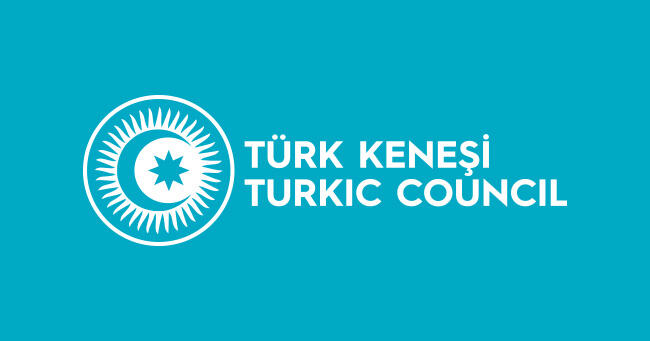
Member states of the Turkic Council took a historic step in May in Kazakhstan by establishing the Joint Turkic Chambers of Commerce and Industry (TCCI) to institutionalize existing economic cooperation. The TCCI held its first-ever General Assembly meeting in İstanbul on July 31 where it elected its first president, TOBB Chairman Rıfat Hisarcıkoğlu. Establishment of TCCI, along with other similar efforts, will promote trade, industry, investment, technology, services and other economic sectors among Turkic-speaking states.
During the last Turkic Council summit at the level of heads of state, the presidents particularly emphasized cooperation in the field of economics. Following the summit, the Turkic Council recognized 2019 as the year of economy on its agenda. Setting up the Joint Turkic Chambers of Commerce and Industry is a product of decisive will by member states to constitute a firm and wide base for both economic and human interaction within and beyond the borders of member countries.
So far, 11 meetings of the Turkic Council working group on economic cooperation and nine meetings of ministers in charge of economy were convened. During the meetings, ministers and special experts from member states discussed crucial topics on today’s economic situation, from trade, investments and finance to transport to enact new initiatives that will contribute to the economic and social advancement of member countries.
The world is experiencing unprecedented challenges concerning international peace and security. As a regional organization with responsibilities both in our member states and beyond, the Turkic Council is working hard to address new realities. Economic cooperation among member countries, which have vast human and natural resources and common heritage, will also contribute to regional and global peace and security.
History tells us that economic cooperation in the past millenniums provided rich global cultural exchanges. Members of the Turkic Council are located on the historic Silk Road, which for centuries played a crucial role connecting continents, cultures and ideas and provided fascinating human interaction. In this critical juncture in history, potential for economic cooperation among Turkic-speaking states is bigger than ever. The TurkicCouncil, under the guidance of member states, has worked hard to achieve establishing common avenues for social and economic integration among its member states. Establishment of the Joint Turkic Chambers of Commerce and Industry is one further step in this direction.
Since the Astana Summit in 2015, trade among Turkic Council member states has increased by 22 percent to approximately $9 billion. When Uzbekistan and Turkmenistan are included, the total annual trade figure reaches $16 billion.
The combined gross national income of Turkic Council member states has reached around $1 trillion. This figure alone makes Turkic Council member countries an important global economic power. The council hopes that with the establishment of TCCI, this figure will increase rapidly.
The share of Turkic Council member countries in world trade volume reached $522 billion with an increase of 5 percent in 2018, and when we include Uzbekistan and Turkmenistan, it totaled $558.6 billion in 2018.
The Turkic Council is working harder so that higher potential is achieved. Since the last summit in Kyrgyzstan in 2018, 10 meetings on the ministerial level in different spheres were held; one-fifth of all the Turkic Council meetings at the level of ministers have been held in the past 10 months, and more ministerial meetings are planned to take place before the seventh Presidential Summit to be convened on Oct. 15 in Baku.
The presidential summits and ministerial meetings guide Turkic Council Secretariat to achieve its mandate in a result oriented manner.
Under the umbrella of the Turkic Council, the TCCI will build up industrial and agricultural products in the Turkic-speaking states and promote the concept of quality and competitiveness. The TCCI will also encourage enhancement of trade, service, industry, small and medium enterprises, entrepreneurship, agriculture, intra-regional tourism and handicrafts, customs, transport, IT, innovation and other areas of mutual interest deemed appropriate by the member states.
The TCCI will make recommendations to safeguard the economic and business interests of the member countries, promote investment opportunities and joint ventures. Moreover, the TCCI will assist and encourage organization of and participation in business forums, trade fairs, joint display centers, exhibitions, seminars, conferences, lectures and publicity campaigns.
Promotion and exchange of commercial, technical, industrial management and scientific information, education and know-how amongst the members is vital, and the TCCI will address this need while collecting and disseminating statistical data.
In line with a constant increase in trade volume among member states, the TCCI will advocate for trade facilitation of the region to remove the barriers that hinder the exchange of goods and services. At the same time, under the umbrella of the Turkic council, the TCCI will identify and propose the necessary measures to increase trade volume and economic cooperation. In addition to assisting the settlement of commercial disputes that might arise among the companies within member countries, the TCCI will contribute to the improvement of the investment to enhance and encourage foreign investment.
Strengthening relations with international trade organizations, bodies and unions, and chambers to promote the private sector’s role in the process of socio-economic development are among other goals for the TCCI to achieve.
The Turkic Council’s work doesn’t end there. The council intensifying efforts to establish a joint investment fund, which will be a vital financial instrument for supporting small and medium-sized enterprises (SMEs).
Turkic Council is a regional organization with specific mandate and goals. The council feels precious historical responsibility on our shoulders to rebuild bridges among hundreds of millions of brethren within the borders of our member states.
The council’s work in the field of economic cooperation is a complementary step to our other activities in the fields of political cooperation, youth and sports, education and science, transport, customs, tourism, diaspora, information and communication technologies, and media; among others.
The Turkic Council will tirelessly continue to work towards achieving its goals because the council knows that our member countries not only share a common historical heritage, but they also share a common future.